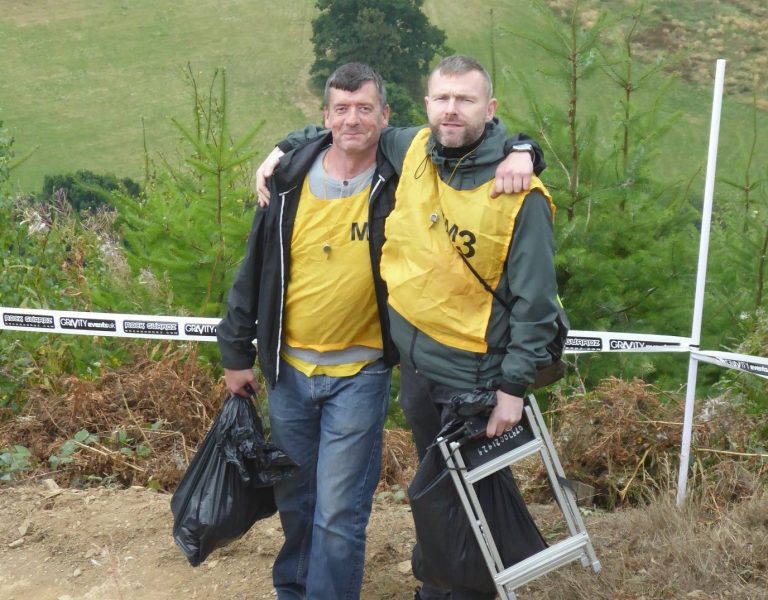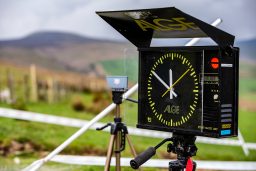
Marshal Info
Welcome to the Race Marshall Duties guide. Thank you for volunteering your time to be a race marshal at our events. Your presence is essential in ensuring the safety of the riders and the success of the races. Being a marshal is a rewarding experience as you get to be up close to the action and engage with the riders in unique viewpoints not accessible to regular spectators.
To show our appreciation, we provide some benefits for our marshals. As a volunteer, we can reimburse your out-of-pocket expenses. We also offer a packed lunch and drinks during your service. On Sundays, after the racing has finished, we pay £60 in cash per day. For Nationals, the payment is £70 due to the longer day. Before the event, there will be a Marshall Briefing that you must attend. The details of the briefing will be communicated to you in advance, and it will usually take place near the sign-on tent.
During the briefing, you will receive instructions regarding your duties for the day. If your assigned point is near a hazardous feature or road crossing, you will also receive specific information about it. You will be provided with a Marshall Kit, which includes a radio, flags, a sanitized whistle, spare course tape, and a rubbish bag. Additionally, you will receive a packed lunch with typically sandwiches, snacks, crisps, a chocolate bar, a cold drink. Feel free to bring extra food if needed. If transportation is required for your position, you will be directed accordingly, and return arrangements will be communicated to you at the end of the day.
Please ensure that you come prepared for your role as a marshal. Since you will be stationed on a mountainside for the duration of the practice and race day, it is important to wear suitable clothing and footwear for comfort. Additionally, bring waterproofs to cope with changing weather conditions, as well as suncream and insect repellent. If you need a toilet break, please inform your head marshal, and they will arrange cover for you.
As a race marshal, your responsibilities include ensuring that spectators and media stay in designated areas and off the course at all times. They should not enter the 'B' zones or go below the course tape on steep corners. Media personnel should position themselves safely and avoid distracting riders. If anyone is found in violation of these rules, they should be addressed and asked to move. If they refuse, contact the Head Marshal for further assistance. Before the course goes "Live," a full Marshall Radio check will be conducted. Each marshal will announce their position over the radio. During practice, you should blow the whistle once for every rider that passes your position. This helps riders know if there is another rider behind them. Before using any flags on the course, check if another rider is nearby and allow fallen riders time to get up and continue. During racing, there are 30-second intervals between riders, which may be enough time for incidents to clear without using flags and slowing down the race. However, if necessary, you can use a yellow flag during practice to slow down riders in case of an incident.
Yellow flags should not be used once racing has started on Sunday. If you do use a flag, inform the chief marshal via radio about the incident and when the track is clear again. A red flag may be used during practice and racing to stop riders when the track ahead is closed. During racing, a red flag should only be used for serious incidents that require the track to be closed for medical assistance. When using a red flag, announce it over the radio. If a rider ignores a red flag, report their number to the head marshal and the Commissaire for appropriate action. You may also be asked by the Commissaire to provide input on a situation you witnessed at your location. If a rider breaks the tape, inform the Head Marshal and arrange for any necessary course repairs. It is also important to report any incidents of foul riding, course cutting, or other significant rule infractions. When reporting infringements by riders, provide their number only.
During the race, you will have a radio for communication. Remember that only one person can transmit at a time, so avoid unnecessary conversations. Keep the radio close by and respond to all radio checks with your Marshall number. In case of an emergency, act immediately and communicate a response. All emergency communication should go through your head marshal, who will inform the Commissaires.
You may be the first person to contact medical assistance after a crash. Provide your Marshall number, the location of the incident, and the rider's condition. Take care of your radio and return it to the head marshal at the end of each day. If a rider falls off their bike, raise a yellow flag to warn other riders of their position. Radio in that there is a yellow flag at your marshal point. If the fallen rider quickly gets up and poses no danger, allow them to remove themselves and their bike from harm's way. Do not move to assist them as it may put you in danger. In more serious cases, raise a red flag and inform the head marshal via radio to stop all riders immediately. If a rider ignores a red flag, report their number to the head marshal and the Commissaire. If it is safe to assist, either seek help from a fellow rider or assess the situation yourself and communicate with the head marshal. If you notice any changes or instability on the course, radio in to the head marshal for observation or assistance from the course maintenance team.
After the racing on Sunday, please help in keeping the area clean. Use the black bin liner provided to collect any litter around your marshal point. This is important as we are usually in forest or private farm land, and rubbish can be a danger to wildlife and the environment. Additionally, at the end of the event, please clear the course of rubbish, course tape, race signage, and poles. There may be designated collection points for the poles, which will be communicated during the marshal briefing on Sunday morning. At the end of Saturday's practice, return to the marshal briefing area for a small debriefing and to hand back your kit.
After clearing the track and returning, there will be a marshal debriefing on Sunday, where you will receive payment for your services from our marshal team. Thank you once again for your valuable contribution as a race marshal. We appreciate your dedication and support in making our events safe and successful.
We need your consent to load the translations
We use a third-party service to translate the website content that may collect data about your activity. Please review the details and accept the service to view the translations.

